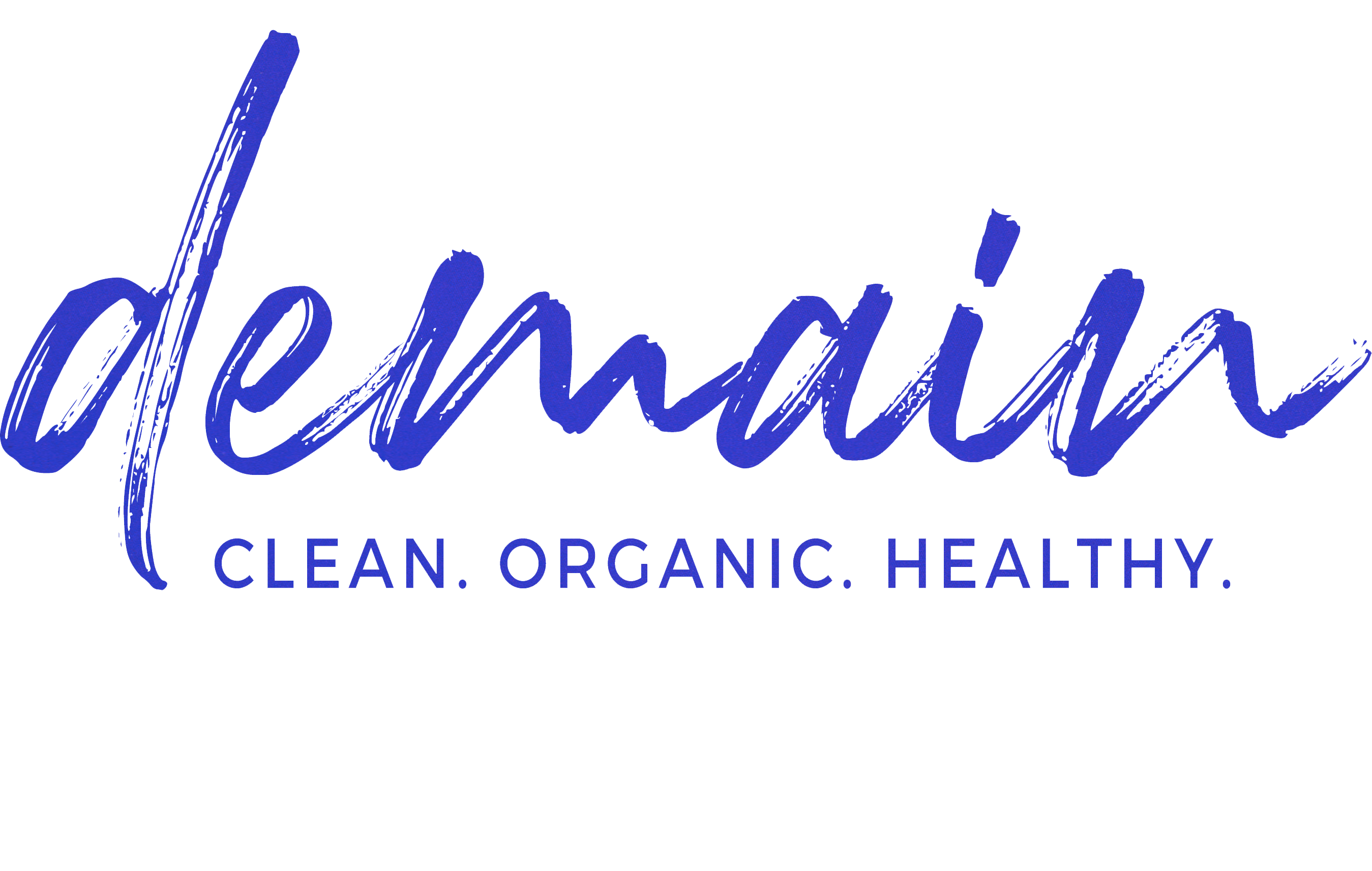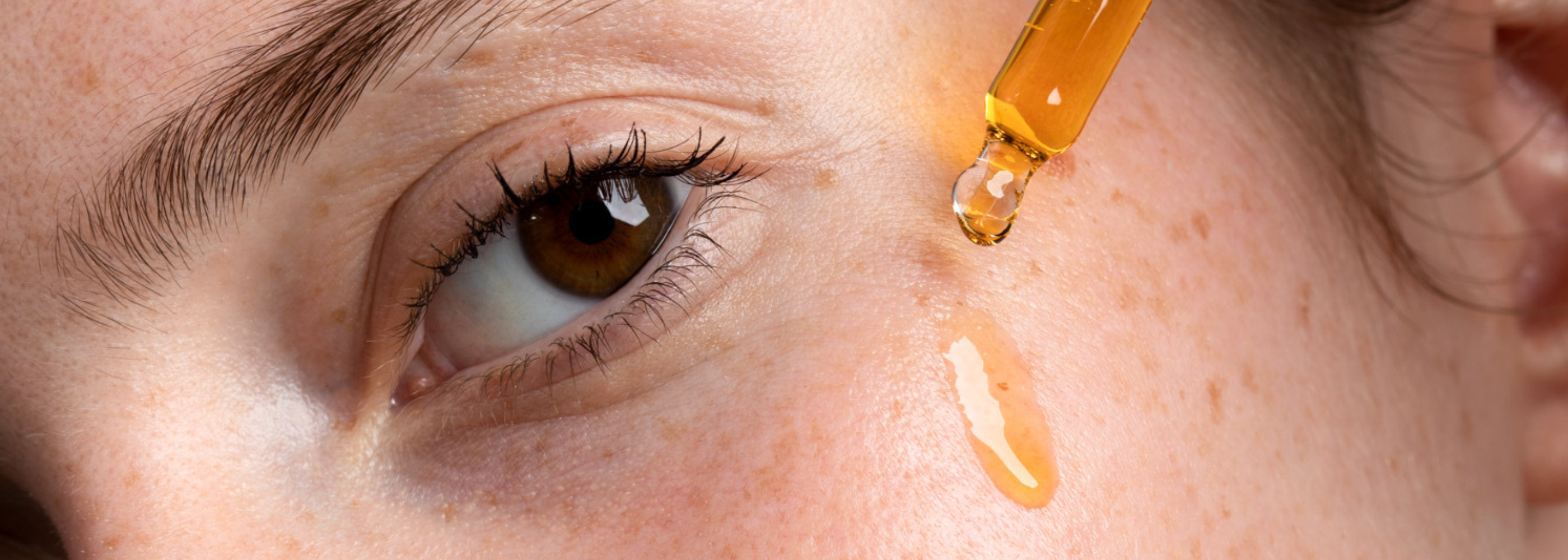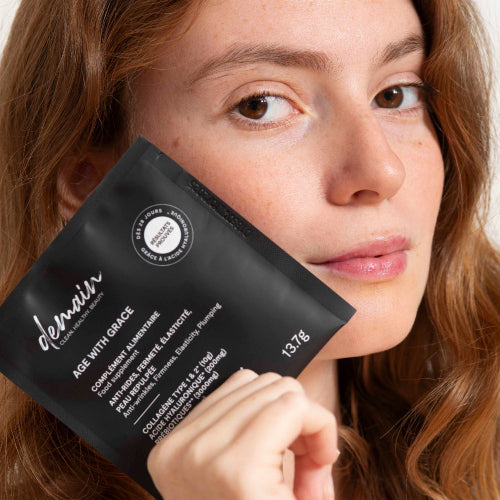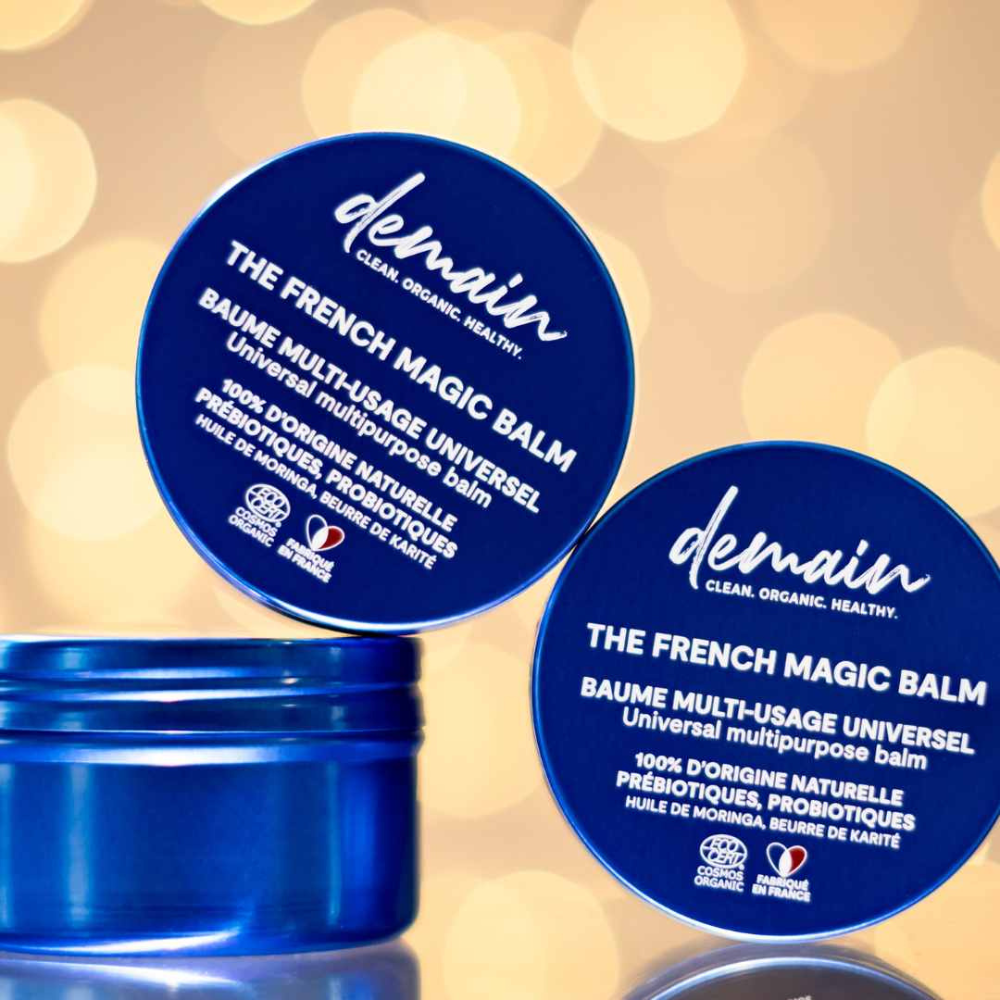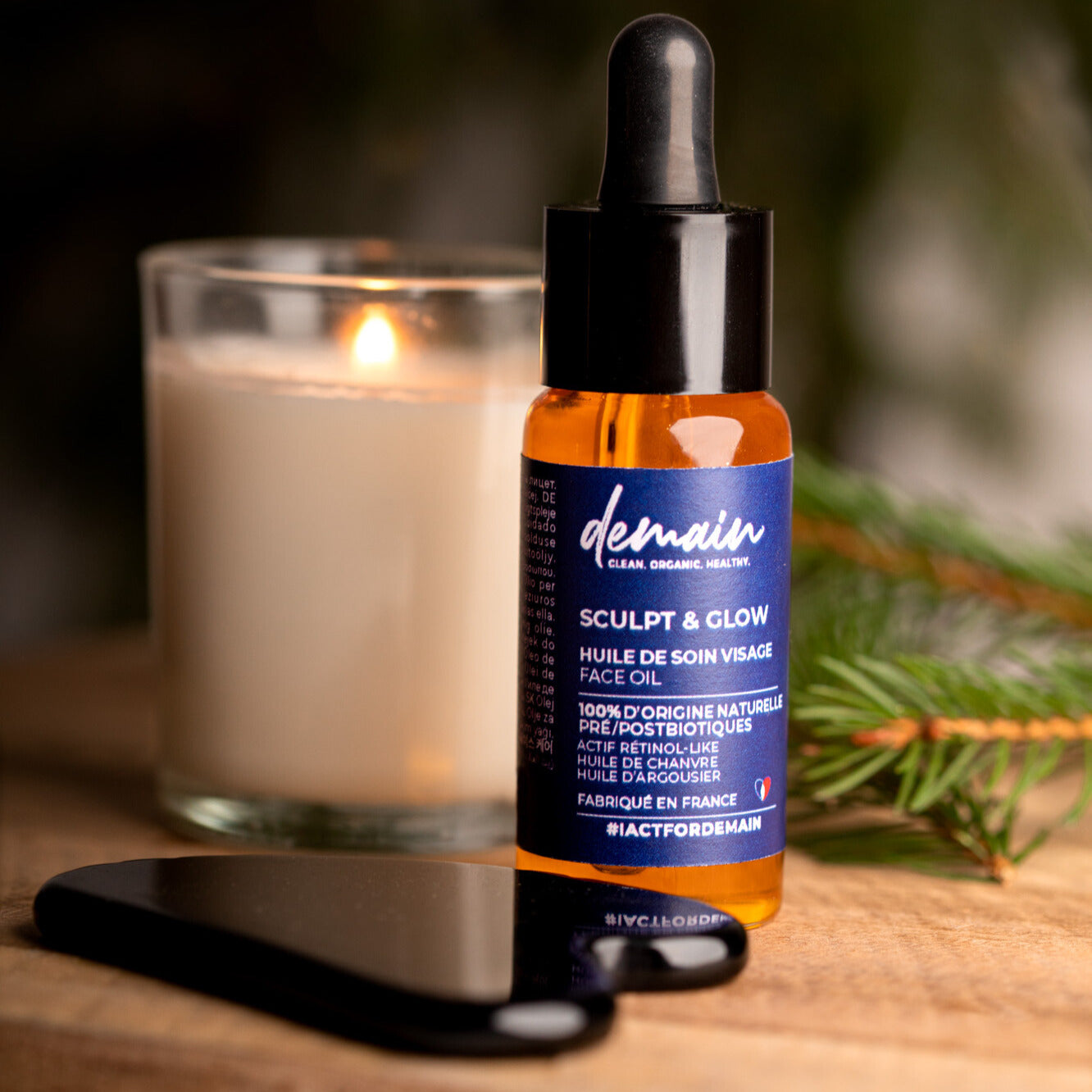Summer is over, and your skin has suffered the ravages of the sun. How can you repair it and regain healthy, glowing skin? The key could be in your diet. Indeed, a balanced diet, rich in essential nutrients, has a direct impact on the health of our skin. Whether it's to fight acne, psoriasis, or simply maintain skin elasticity and firmness, certain foods are best. Let's discover which ones.
Understanding the link between diet and skin health
Our skin is a reflection of our diet. A varied and balanced diet of fruits, vegetables, proteins, and essential fatty acids can help maintain healthy skin. Certain vitamins and minerals play a specific role in maintaining the health of our skin. For example, vitamins A and E are essential for cell renewal and protection against external aggressions. Omega-3s found in oily fish contribute to skin hydration. Similarly, antioxidants found in berries and dark chocolate help fight skin aging by neutralizing free radicals. This is why it is crucial to understand the link between our diet and the health of our skin .
Foods to favor for healthy and beautiful skin
To achieve radiant skin after summer, various foods rich in specific nutrients are recommended.
Colorful fruits and vegetables , such as carrots, spinach, or mangoes, are rich in beta-carotene . Beta-carotene is converted into vitamin A in the body, which is essential for skin cell renewal.
Foods rich in vitamin C , such as citrus fruits or berries, promote the production of collagen, a key protein for firm and elastic skin.
Foods containing omega-3 fatty acids , such as oily fish (salmon, mackerel) and chia seeds, help maintain skin moisture.
Foods rich in antioxidants , such as green tea or cocoa, help neutralize free radicals, thus helping to prevent premature aging of the skin.
Finally, adequate hydration is crucial for healthy skin. It is therefore recommended to drink at least 1.5 liters of water per day.
Here are some examples of foods to favor:
- Fruits and vegetables : Carrots, spinach, mangoes
- Foods rich in vitamin C : Citrus fruits, berries
- Sources of omega-3 : Oily fish, chia seeds
- Foods rich in antioxidants : Green tea, cocoa
- Hydration : Water
How does nutrition affect the health of our skin?
The role of vitamins in skin health
Vitamins play a central role in maintaining skin health. They are involved in various essential biological processes such as cell renewal, regulation of hormonal balance, and protection against oxidative damage.
For example, vitamin A is known to promote cell renewal and help maintain skin integrity. It is found in many foods such as liver, eggs, and green leafy vegetables.
Vitamin C is a powerful antioxidant that helps protect skin from free radical damage. It is also involved in the production of collagen, a protein essential for skin elasticity and firmness. Food sources of vitamin C include citrus fruits, strawberries, and bell peppers.
Vitamin E also has antioxidant properties and helps protect skin from environmental damage. It is found in vegetable oils, nuts, and seeds.
Finally, vitamin D is essential for skin health. It can be synthesized by the skin itself when exposed to sunlight. It plays an important role in regulating many biological processes, including hormonal balance.
The Importance of Essential Fatty Acids for Supple Skin
Essential fatty acids , such as omega-3 and omega-6, are essential nutrients for maintaining supple and well-hydrated skin. These fatty acids are involved in the formation of cell membranes and thus help maintain skin elasticity. They are found in particular in oily fish such as salmon or mackerel, but also in certain vegetable oils such as rapeseed or linseed oil.
- Omega-3s have an anti-inflammatory effect and help prevent redness and acne. They also contribute to skin hydration, which can prevent dry skin.
- Omega-6s , particularly linoleic acid, play a role in the structure and function of the skin barrier. A deficiency in omega-6 can lead to dry, flaky skin.
It is recommended to regularly incorporate these sources of essential fatty acids into your diet to maintain supple and well-nourished skin.
The benefits of antioxidants on skin elasticity
Antioxidants are powerful compounds that help protect skin from damage caused by free radicals. Free radicals are unstable molecules that can damage skin cells, leading to a loss of elasticity. Antioxidants help neutralize these free radicals, thus maintaining skin health and elasticity.
Different types of antioxidants have specific effects on skin elasticity:
- Vitamin C : It stimulates the production of collagen, a protein essential for skin elasticity.
- Vitamin E : It contributes to the repair of skin tissue and the prevention of damage caused by UV rays.
- Flavonoids : They trap free radicals and regenerate other antioxidants, thus preserving the skin's elasticity.
- Beta-carotene : It converts to vitamin A in the body, which is essential for skin cell renewal.
Many foods contain these antioxidants, including colorful fruits and vegetables, green tea, and dark chocolate. Including these foods in your diet can help maintain your skin's elasticity.
The impact of water-rich foods on skin hydration
Foods and Skin Beauty: Water-rich foods, such as fresh fruits and vegetables, have a significant impact on our skin's hydration. Cucumber, watermelon, melon, and celery, which contain over 90% water, help hydrate our bodies from the inside out, including our skin. Dairy products, also rich in water, are another source of hydration. Proper hydration is essential for maintaining skin elasticity and preventing signs of aging. Let's not forget liquids prepared with water, such as fruit juices or soups, which also help hydrate our skin.
Foods to avoid to prevent skin problems
To maintain the health of your skin, certain foods should be eaten in moderation or even avoided.
Foods high in refined sugars, such as candy, soda, or cake, can contribute to the development of skin problems. Consuming them causes a rapid rise in blood sugar levels, which can cause skin inflammation and contribute to the development of acne.
Dairy products, especially cow's milk , can also be problematic. They contain hormones that can upset our body's natural hormones, causing overproduction of sebum and therefore the appearance of pimples.
Processed foods and ready meals, often high in saturated fats and salt, should also be avoided. They can increase oxidative stress in the body, accelerating skin aging.
It is also recommended to moderate your alcohol consumption, which can dehydrate the skin and accentuate redness.
The role of diet in treating acne and psoriasis
Foods that exacerbate acne
There are many foods that can make acne worse. These include:
- High-glycemic foods : These can cause a rapid rise in blood sugar levels, leading to excess insulin and sebum production, both of which contribute to acne. These foods include white bread, pastries, soda, and candy.
- Dairy products : Some research suggests a link between dairy consumption and acne, likely due to the hormones they contain.
- Processed foods : These products, often high in saturated fats, added sugars, and salt, can increase inflammation in the body, a key factor in the development of acne.
- Alcohol : It can dehydrate the skin and stimulate sebum production, two elements that can promote the appearance of acne.
Therefore, it is recommended to reduce the consumption of these foods if you suffer from acne.
Diet and psoriasis: what are the links?
Psoriasis is a chronic, inflammatory skin disease. Diet can have a significant impact on psoriasis, although the exact links are not yet fully understood.
Certain foods can potentially exacerbate psoriasis symptoms. For example, a high-fat diet can have a detrimental effect on psoriasis. Conversely, a balanced and appropriate diet can help manage symptoms.
Foods rich in omega-3s, known for their anti-inflammatory effects, are beneficial for people with psoriasis. Additionally, an antioxidant and anti-inflammatory diet, such as the Mediterranean diet, can help alleviate symptoms.
However, it is essential to emphasize that every individual is unique and what works for one may not work for another.
The importance of a balanced diet for firm and toned skin
For firm, toned skin, your diet should be rich in specific nutrients. Protein , for example, is essential for the production of collagen and elastin, which are responsible for skin firmness and elasticity. Protein-rich foods include meat, fish, eggs, and legumes. Did you know? Collagen is a great protein!
Vitamins A, C, and E are also important. Vitamin A helps repair skin tissue. It's found in carrots, spinach, and sweet potatoes. Vitamin C, found in citrus fruits, strawberries, and bell peppers, helps produce collagen. Vitamin E, on the other hand, protects skin from free radical damage. It's found in seeds, nuts, and green leafy vegetables.
Finally, don't forget good fats , such as omega-3s, found in oily fish, walnuts, and flaxseeds. They help keep skin hydrated and supple.
An unbalanced diet lacking in essential nutrients can affect the quality of your complexion. Excess sugar and saturated fat can cause inflammation in the body, resulting in dullness, breakouts, or sagging skin. These foods can also increase oxidative stress, accelerating skin aging.
Conversely, a balanced diet rich in vitamins A, E, and C , as well as foods containing antioxidants , contributes to skin health and promotes a luminous complexion. Berries and citrus fruits, for example, are natural sources of antioxidants and vitamin C that help improve the complexion's radiance.
It is therefore essential to ensure the quality of your diet to preserve the beauty and radiance of your complexion.
How does a deficient diet affect skin color and tone?
The impact of an unbalanced diet on the complexion
How can nutritional deficiency affect skin color?
A dietary deficiency can alter skin color. In particular, a vitamin or mineral deficiency can lead to visible changes. For example, a lack of vitamin A can cause dry, flaky skin, while a vitamin C deficiency can lead to pale skin and red spots. Similarly, an iron deficiency can give the skin a pale or yellowish color.
Carotenoids, found in orange or red fruits and vegetables, can also influence skin color. A high intake of these foods can lead to an orange skin tint, a sign of good health.
Mineral deficiencies can also affect skin color. For example, a zinc deficiency can lead to rashes.
It is therefore essential to maintain a balanced and varied diet, rich in vitamins, minerals and antioxidants to preserve healthy skin and natural skin color.
Drink for beautiful skin: the importance of hydration
Water, an essential ally for beautiful, radiant skin
On the path to beautiful, glowing skin, water is an unrivaled resource. Hydration is essential for maintaining healthy skin. Water contributes to skin suppleness and elasticity and helps prevent dryness.
Opt for pure, low-sodium water to avoid water retention and skin aging. Regular water consumption ensures sufficient water intake in the deep layers of the dermis, which is essential for the vitality of our epidermis.
- Water consumption : It helps keep skin hydrated, eliminate toxins from our body and maintain a good water balance.
- Moisturizing cosmetic treatments : They can complement the hydration provided by water, helping to restore the skin's skin barrier and prevent water evaporation.
Remember, everyone is different, so it's recommended you consult a board-certified dermatologist to determine the optimal amount of water to consume based on your skin type and lifestyle.
The benefits of an organic diet on the skin
Eating an organic diet can have a positive impact on your skin health. Organic foods, because they're grown without pesticides, are generally richer in nutrients that benefit the skin. For example, organic products are often richer in omega-3s, known for their ability to hydrate skin from within and reduce inflammation.
Certain organic foods are particularly recommended for healthy skin. Organic fruits and vegetables, rich in antioxidants, help fight free radicals responsible for skin aging. Furthermore, organic dairy products contain fewer synthetic hormones that can disrupt the hormonal system and cause breakouts.
Organic foods may also have fewer pesticide residues, which can disrupt the endocrine system and affect skin health. Finally, an organic diet contributes to a healthier lifestyle, which can be reflected in the condition of your skin.
In summary, an organic diet can be beneficial for the skin thanks to
- Greater nutrient density
- A lower presence of pesticides and synthetic hormones
- A positive impact on general lifestyle
Tips for adopting a diet that promotes soft and luminous skin
To promote soft, glowing skin, choose foods rich in vitamins and minerals . Colorful fruits and vegetables are particularly recommended for their vitamin C and carotenoid content, known for their antioxidant properties and ability to improve skin radiance.
- Citrus fruits such as orange, lemon, and grapefruit are an excellent source of vitamin C.
- Carrots and tomatoes are rich in carotenoids.
- Red fruits are known for their richness in antioxidants.
- Vegetable oils (olive, flax, walnut) and oily fish (salmon, mackerel) are rich in omega-3 fatty acids which promote skin hydration.
Also remember to drink enough water to maintain good skin hydration.
On the other hand, certain foods should be moderated, such as refined sugars , red meats , coffee and alcohol which can affect skin health.

